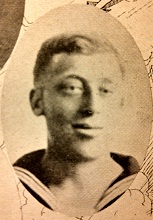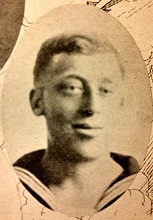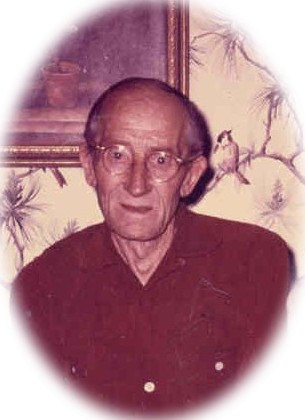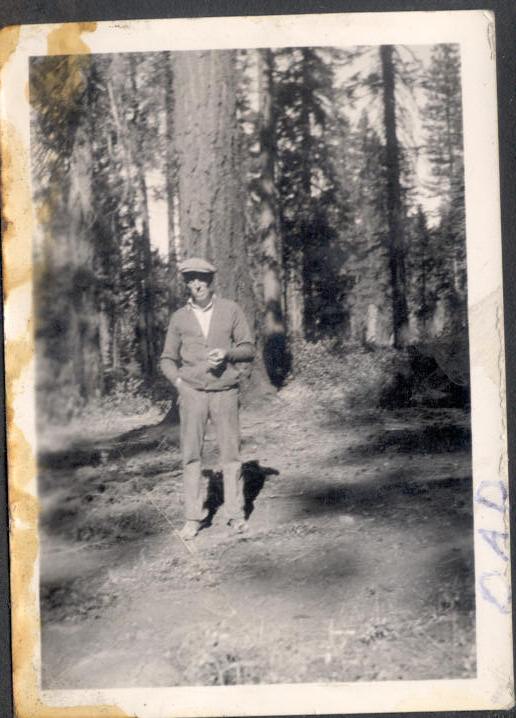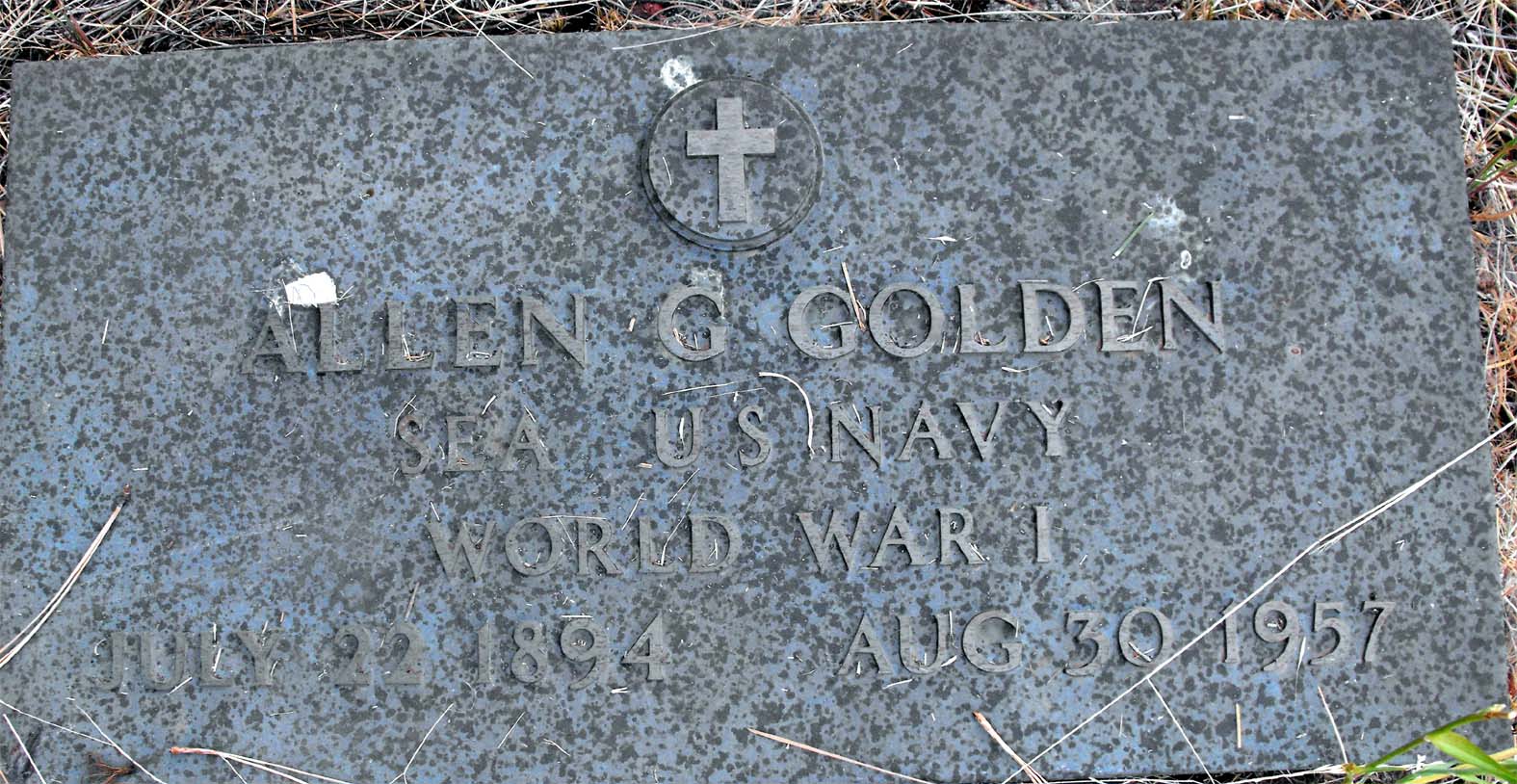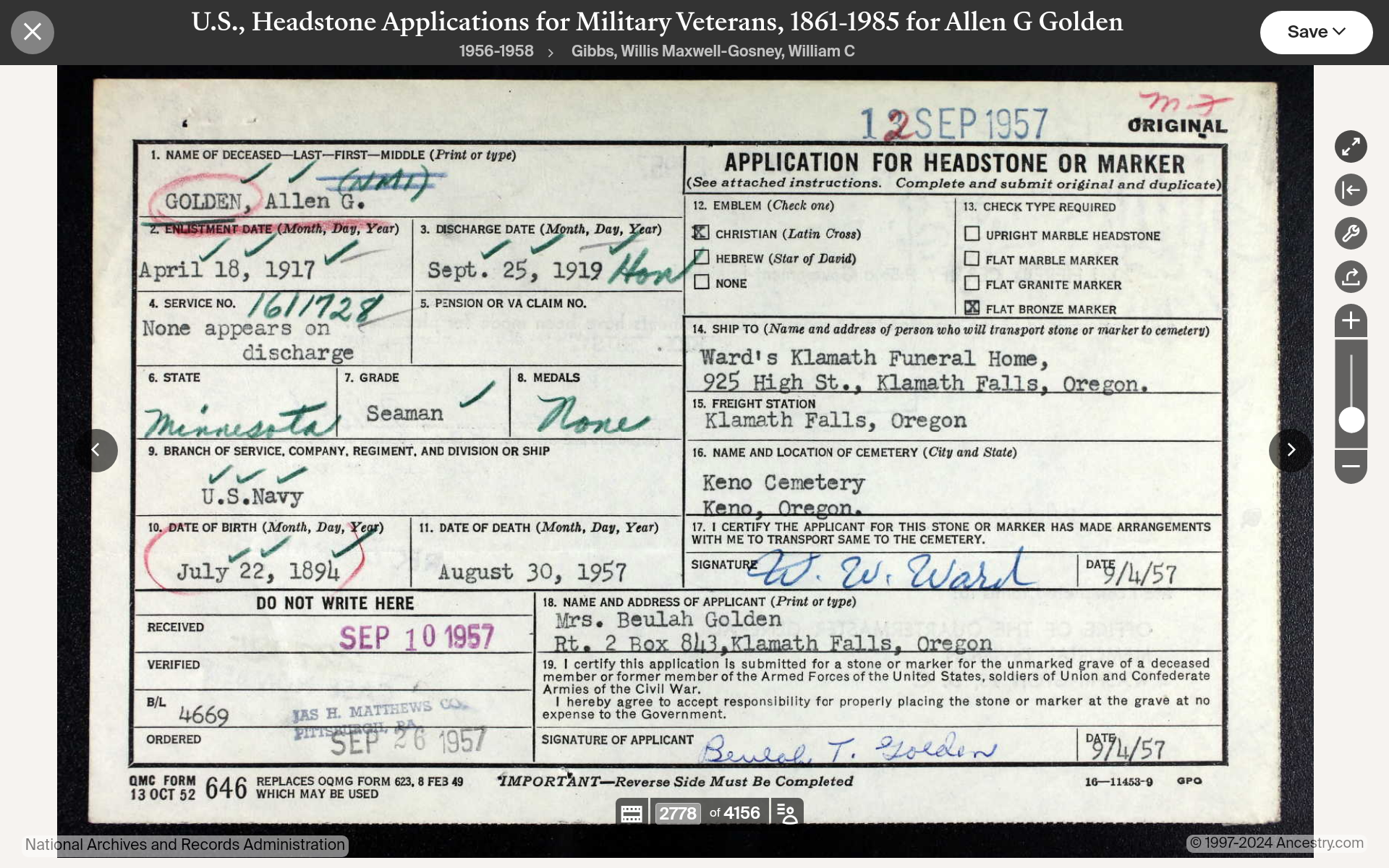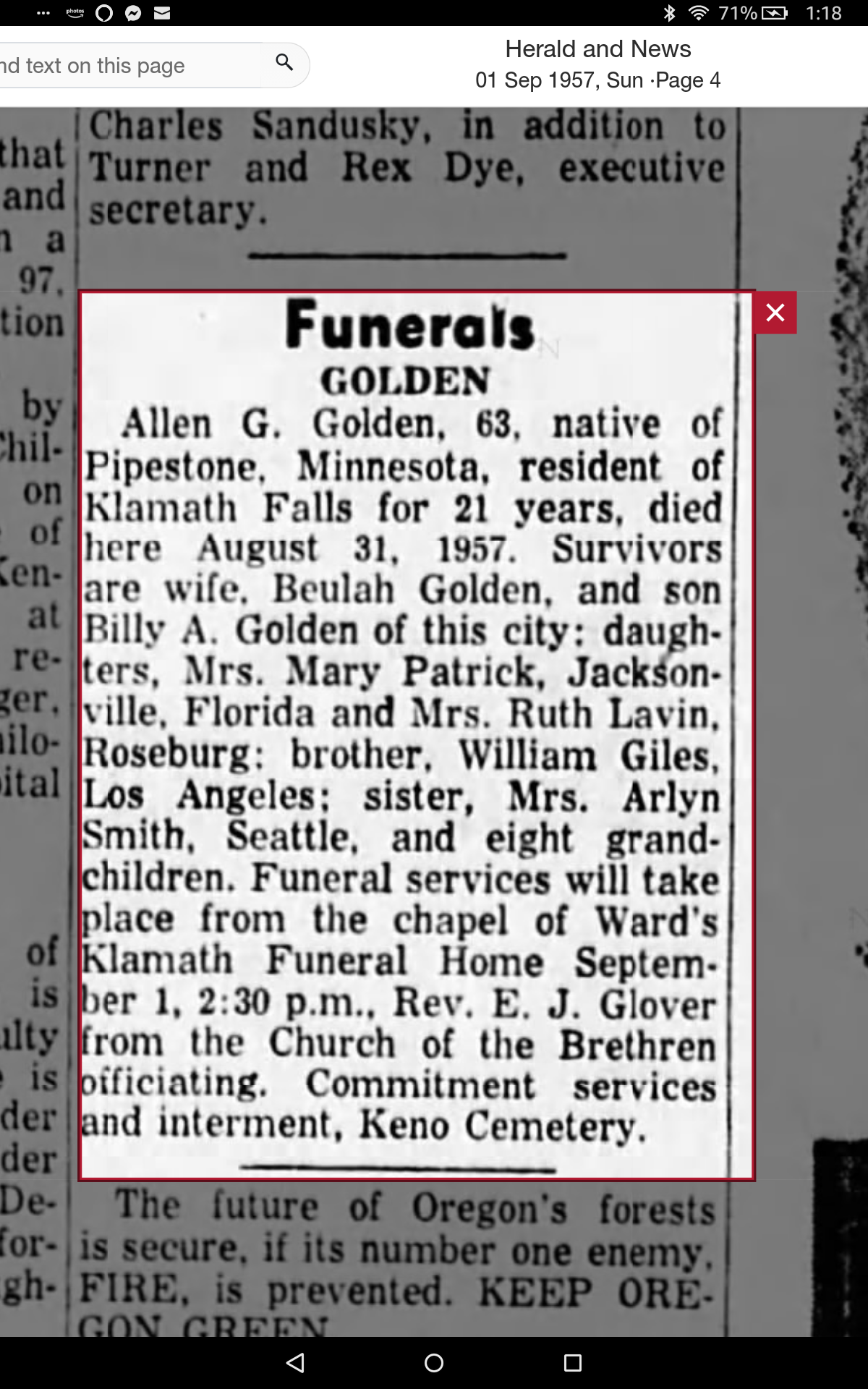His mother, aka Nettie, died when Allen was 16 years old. With his father living in Montana-Idaho-Washington states upon leaving the Northern Pacific Railroad (as a carpenter), there was little discussion: He'd join the Navy and enter WWI. With only an eighth grade education he served best in laborer positions, and served in the engine rooms of ships (could be where his lungs started their downhill spiral). When he got out of the Navy, he disembarked in Bellingham, WA. We don't know if he knew his father had lived in WA at the time or not. (His father died in 1917 in Tacoma at the Northern Pacific Railroad Hospital. Allen was 23.)
Alone, away from blood relatives, but near other Navy buddies (now his 'family'), he stayed on in WA. A few of his buddies were writing their girlfriends, who were teachers in New Mexico at a Navajo/Indian Affairs school. These girls asked another girl if she'd like to write one of their boyfriends' friend. She did, but threw the letter away, thinking it silly. Those girls took the letter out of the trash, smoothed it out and mailed it. Allen was the boy and he eventually married the girl (sight unseen, except for photos). (Who needs the internet?)
Allen's sister Hazel and her family found their way to the Seattle, WA area, while Allen and his family moved uphill to Concrete, WA, where he worked in a cement factory. (His family believes the cement dust did nothing for Allen's lungs.) Here, his three children were born. He also worked in a fish hatchery in Concrete.
When the depression hit, the family move to Texas where his wife's brother had found a job for him in a refinery, as a fireman. When that job was lost, the family moved again to Arkansas, to live with his wife's parents. While there, he would hit the rails, to scope out potential jobs in the area...one could call him a Hobo, though he didn't make it a career. He would tell of the train stopping and the men would run into fields and steal food, even in turnip fields.
Eventually, one of his wife's sisters suggested they move to Klamath County. He found work in Pelican City as a 'pond monkey', ensuring that logs were moving smoothly in the Klamath Lake/River estuary. As he got older, he'd work in some of the lumber yards/factories in town. His health was going downhill as he reached his 40's/50's and he retired early, while his wife worked as a teacher in the Klamath schools, served as a cook for the Geary Grass Seed farm's bunk house(s), and as a landscape assistant out near Moore Park. Because the family lived near the Merrill-Lakeview Junction (far end of South Sixth Street), she would have to live away from home and travel on weekends. Her daughters cared/cooked for their father, esp when their only son was in Europe in WWII. The girls eventually married (as soon as they could), as they were tired of having to help at home. They wanted their own families. His son and his family stayed in Klamath Falls, eventually moving to the family home 3 years after the death of Allen, to help care for his wife and property.
Allen's health went downhill in his late 50's/early 60's and he died in 1957 at 63 years old. Although his death certificate states a specific ailment, the family believes that today's diagnosis could have been lung cancer or mesothelioma, based on the asbestos board/insulation in the navy ships or the various laborer jobs he had through life.
His children would tell of his stories of fairies, etc., that he learned as a child. His maternal grandparents both came from England (he did not know his paternal grandparents). Could be they brought stories from the Isles. We wish we knew some of those stories to pass along to future generations.
Before he passed away, he had told his wife of the little, rustic cemetery in Keno, OR. He said he wanted to face the river that he had known for so many years. His wish was granted. He now shares that resting place with her, with deer walking over their graves, and scrub jays flying over head in the shadow of the pines he so well knew.
We would like to thank all those with the Keno Cemetery organization who help us and other families who are no longer available to monitor the health of their loved ones' graves.
His mother, aka Nettie, died when Allen was 16 years old. With his father living in Montana-Idaho-Washington states upon leaving the Northern Pacific Railroad (as a carpenter), there was little discussion: He'd join the Navy and enter WWI. With only an eighth grade education he served best in laborer positions, and served in the engine rooms of ships (could be where his lungs started their downhill spiral). When he got out of the Navy, he disembarked in Bellingham, WA. We don't know if he knew his father had lived in WA at the time or not. (His father died in 1917 in Tacoma at the Northern Pacific Railroad Hospital. Allen was 23.)
Alone, away from blood relatives, but near other Navy buddies (now his 'family'), he stayed on in WA. A few of his buddies were writing their girlfriends, who were teachers in New Mexico at a Navajo/Indian Affairs school. These girls asked another girl if she'd like to write one of their boyfriends' friend. She did, but threw the letter away, thinking it silly. Those girls took the letter out of the trash, smoothed it out and mailed it. Allen was the boy and he eventually married the girl (sight unseen, except for photos). (Who needs the internet?)
Allen's sister Hazel and her family found their way to the Seattle, WA area, while Allen and his family moved uphill to Concrete, WA, where he worked in a cement factory. (His family believes the cement dust did nothing for Allen's lungs.) Here, his three children were born. He also worked in a fish hatchery in Concrete.
When the depression hit, the family move to Texas where his wife's brother had found a job for him in a refinery, as a fireman. When that job was lost, the family moved again to Arkansas, to live with his wife's parents. While there, he would hit the rails, to scope out potential jobs in the area...one could call him a Hobo, though he didn't make it a career. He would tell of the train stopping and the men would run into fields and steal food, even in turnip fields.
Eventually, one of his wife's sisters suggested they move to Klamath County. He found work in Pelican City as a 'pond monkey', ensuring that logs were moving smoothly in the Klamath Lake/River estuary. As he got older, he'd work in some of the lumber yards/factories in town. His health was going downhill as he reached his 40's/50's and he retired early, while his wife worked as a teacher in the Klamath schools, served as a cook for the Geary Grass Seed farm's bunk house(s), and as a landscape assistant out near Moore Park. Because the family lived near the Merrill-Lakeview Junction (far end of South Sixth Street), she would have to live away from home and travel on weekends. Her daughters cared/cooked for their father, esp when their only son was in Europe in WWII. The girls eventually married (as soon as they could), as they were tired of having to help at home. They wanted their own families. His son and his family stayed in Klamath Falls, eventually moving to the family home 3 years after the death of Allen, to help care for his wife and property.
Allen's health went downhill in his late 50's/early 60's and he died in 1957 at 63 years old. Although his death certificate states a specific ailment, the family believes that today's diagnosis could have been lung cancer or mesothelioma, based on the asbestos board/insulation in the navy ships or the various laborer jobs he had through life.
His children would tell of his stories of fairies, etc., that he learned as a child. His maternal grandparents both came from England (he did not know his paternal grandparents). Could be they brought stories from the Isles. We wish we knew some of those stories to pass along to future generations.
Before he passed away, he had told his wife of the little, rustic cemetery in Keno, OR. He said he wanted to face the river that he had known for so many years. His wish was granted. He now shares that resting place with her, with deer walking over their graves, and scrub jays flying over head in the shadow of the pines he so well knew.
We would like to thank all those with the Keno Cemetery organization who help us and other families who are no longer available to monitor the health of their loved ones' graves.
Inscription
SEA US Navy/WWI
Family Members
Sponsored by Ancestry
Advertisement
Records on Ancestry
Advertisement
